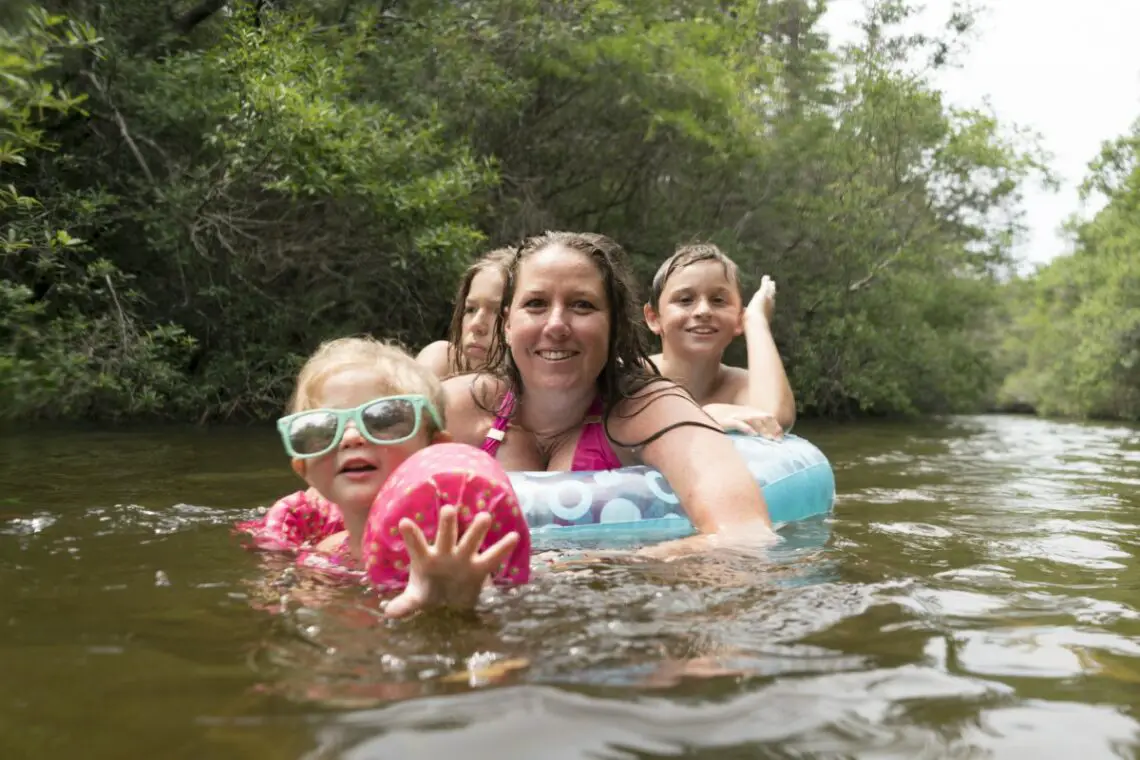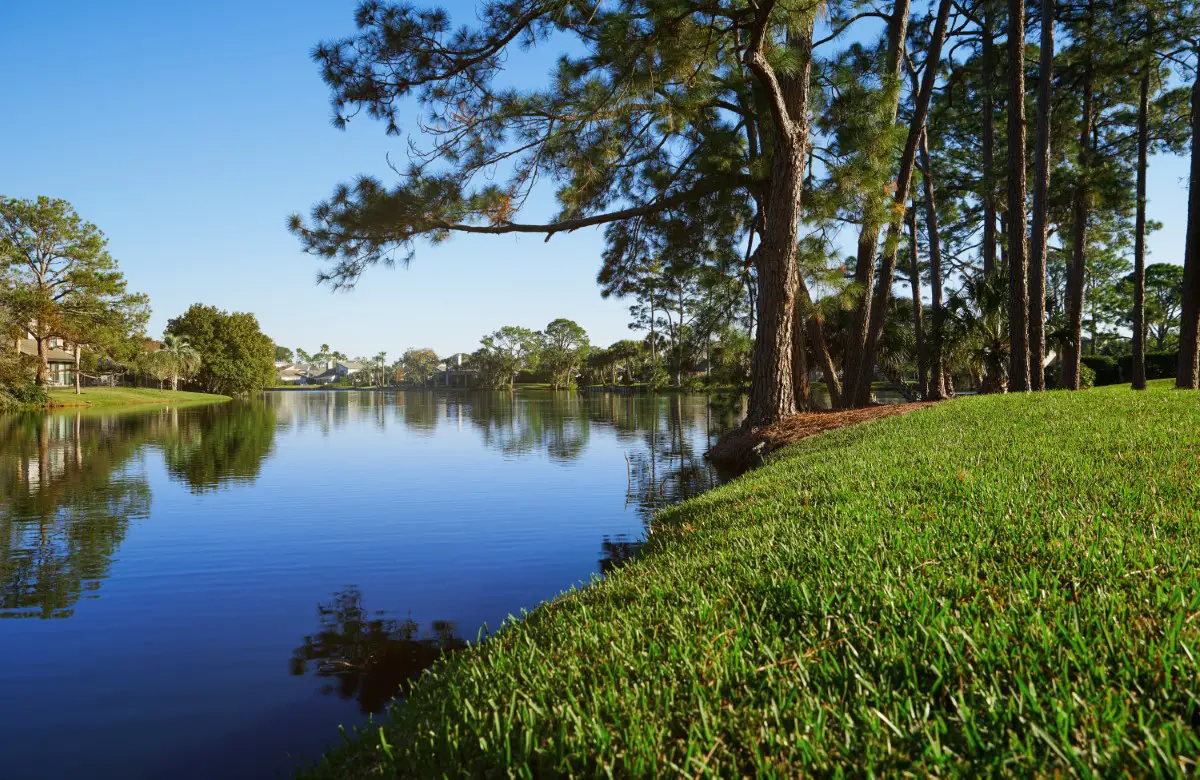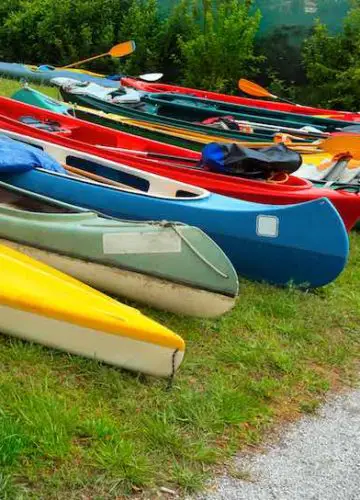
Is it Safe To Swim In Lakes In Florida?
Florida is known for its beautiful beaches and warm weather, but did you know that many lakes in central Florida are popular for swimming and other water activities even though Florida has the largest alligator population in the US?
While these lakes can be a great way to cool off and enjoy the great outdoors, many people have concerns about the safety of swimming in Florida’s freshwater bodies, especially when it comes to alligators.
There are plenty of places in Central Florida that cater to these formidable creatures, and if you want to see alligators near Orlando.
In this article, we will explore the safety of swimming in central Florida’s lakes and answer some common questions about alligator encounters.
Table of Contents
Is it safe to swim in lakes in Florida?
Swimming in Florida’s lakes is generally safe as long as you take certain precautions. It is important to keep in mind that Florida’s freshwater bodies are home to a variety of wildlife, including alligators, snakes, and other potentially dangerous animals.
However, if you follow some basic safety guidelines, you can enjoy swimming in Florida’s lakes without worrying unduly about these factors.
One of the most important things to keep in mind when swimming in Florida’s lakes is to avoid areas where alligators are known to be present in great numbers.
Signs are often posted in areas where alligators have been spotted, and it is important to pay attention to these warnings. Additionally, it is important to avoid swimming at dusk or dawn when alligators are most active.
Another important safety precaution is to swim with a partner or in a group. This not only makes swimming more fun but also ensures that someone is there to help in case of an emergency.
Statistics On Alligator Attacks
According to an article in USA Today, alligator attacks are very rare but they do happen. From when records were first kept in 1948 to 2021, there were a total of 442 unprovoked alligator bites in Florida.
Over those 73 years, it is an average of six bites a year. That seems pretty low unless you are one of those bitten. Out of those 442 bites, 26 were fatal.
If you need more convincing, the Florida Fish and Wildlife Conservation Commission (FWC) has a Human-Alligator Incident Fact Sheet that states most alligators are naturally afraid of humans.
They also state, however, that alligators will lose their fear of humans when people feed them. When people feed alligators, it teaches the creatures to associate people with food. That is why in Florida, it is illegal to feed wild alligators.
The FWC goes on to optimistically state that the chances of a Florida resident being seriously injured in an unprovoked alligator attack are one in 3.1 million.
The FWC uses the word “unprovoked” a lot, so if you deliberately poke the bear, you won’t be listed in those statistics. Consider yourself on your own!
Frank Mazzotti, professor of wildlife ecology at the University of Florida says that you’re more than likely to drown in water than be attacked by an alligator. To me, that gives you two strong reasons to stay out of the water in Florida.
Is it safe to swim with alligators?

Swimming with alligators is not safe and should be avoided at all costs. Alligators are wild animals, and they can be unpredictable and dangerous.
Even if you do not see an alligator in the water, there may still be one nearby. It is important to remember that alligators are ambush predators, and they can attack without warning.
If you do encounter an alligator while swimming, the most important thing to do is to remain calm and slowly back away. Do not swim toward the alligator or try to touch it.
If the alligator does attack, fight back by hitting it in the eyes, nose, or throat. Remember, however, that it is best to avoid alligator encounters altogether.
Safety Tips For Swimming In Florida Waters
The Florida Fish and Wildlife Conservation Commission gives some safety tips concerning alligators.
Be aware. There is always the possibility of the presence of alligators in or near fresh or brackish water.
Never swim outside of posted swimming areas. You will see the signs posted in areas that have regular alligator sightings. Heed those signs.
Swim in daylight hours. Alligators are the most active between dusk and dawn.
NEVER feed alligators. Not only is it illegal, but it is also dangerous.
Don’t walk Fido by the lake. US News reported that an Alligator Kills 85-Year-Old Florida Woman as She Walked Dog. Pets are about the size of a gator’s normal prey, and so are attracted to dogs and cats.
Maintain a safe distance. Alligators are more adept at moving in the water but can travel at about 35 mph for short instances on land. Keep at least 30 feet away from an alligator, or make sure you are with a friend who is slower than you.
Final Thoughts
All jokes aside, there are over 22 million people who live in the Sunshine State with more people moving there daily. As of January 2023, Florida is the fastest-growing state in the US.
Florida also has the highest number of registered boats in the U.S. That means there are lots of people on the water. The Florida State Parks play host to all kinds of water sports, including swimming, diving, and rafting every day.
As with anything in life, whether it is driving, flying, or hiking in the wilderness, be aware of your surroundings. Millions of people each year swim in the warm waters of Florida and boat, dive and enjoy themselves without becoming a statistic. Floridians have successfully navigated the waters for centuries, and are sure to do so for many more.
FAQs
How can I tell if there are alligators in a lake?
Alligator warning signs are often posted in areas where alligators are known to be present. Additionally, you can look for signs of alligator activity, such as tracks or nesting areas.
If you are unsure whether there are alligators in a particular lake, it is best to ask a local park ranger or other authority. Overall, the best way is to assume if there is water, there are alligators.
Are there any lakes in central Florida that are known to be alligator-free?
That would be a big NO. It is rare to find a lake in central Florida that is completely alligator-free. Don’t assume that that is the case for any body of water in Florida.
However, some lakes are considered to be relatively safe for swimming, such as Lake Eola in downtown Orlando.
Can alligators swim in saltwater?
Yes, alligators can swim in saltwater, and they are often found in coastal areas and estuaries. However, they are more commonly found in freshwater bodies such as lakes and rivers.






